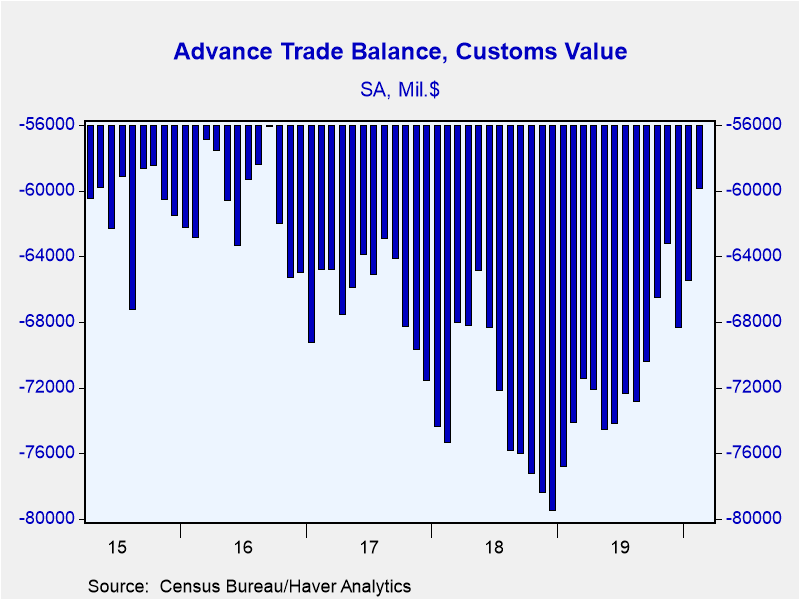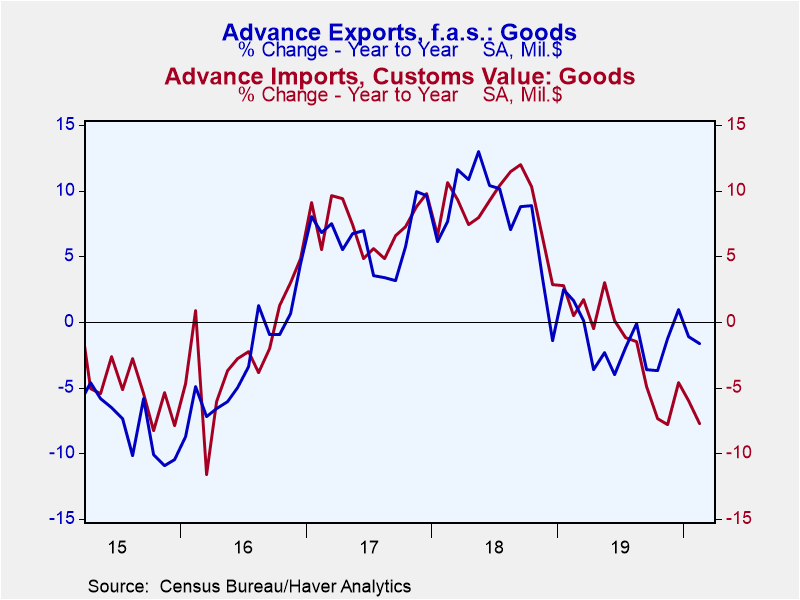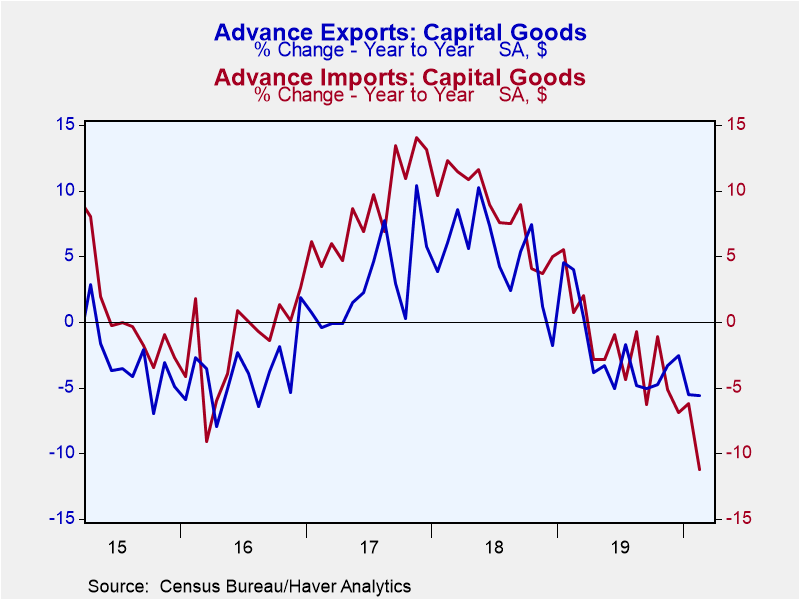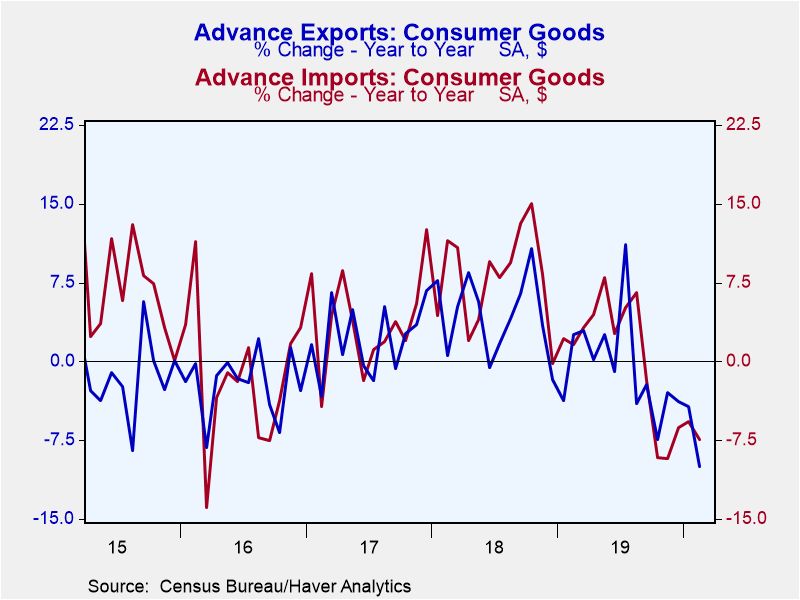 Global| Mar 26 2020
Global| Mar 26 2020Advance U.S. Trade Deficit in Goods Shrinks in February
by:Tom Moeller
|in:Economy in Brief
Summary
The advance estimate of the U.S. trade deficit in goods narrowed to $59.88 billion in February from $65.90 in January. A $63.8 billion deficit had been expected in the Action Economics Forecast Survey. Exports of goods increased 0.6% [...]
The advance estimate of the U.S. trade deficit in goods narrowed to $59.88 billion in February from $65.90 in January. A $63.8 billion deficit had been expected in the Action Economics Forecast Survey.
Exports of goods increased 0.6% m/m (-1.6% y/y) in February following a 0.9% decline. The gain was led by a 5.0% increase in the "other" category which followed a 12.9% decline. Motor vehicles & parts exports also were strong, posting a 3.2% rise (2.1% y/y) on top of a 7.6% January increase. Industrial supplies exports rose 1.5% and recaptured the prior month's decline. Capital goods exports improved 0.5% (-5.6% y/y) following a 2.4% drop. Working the other way were consumer goods exports which fell 4.7% (-10.0% y/y) after a 0.8% rise. Foods, feeds & beverages exports which fell 0.6% (-0.7% y/y) following a 2.1% rise.
Imports of goods fell 2.4% (-7.7% y/y) following a 2.0% decline as most categories exhibited weakness m/m. Capital goods imports weakened 6.8% (-11.2% y/y) after slipping 0.8% in January. Industrial supplies & materials imports fell 3.8% (-10.1% y/y) as oil prices declined. Foods, feeds & beverages imports were off 3.1% both m/m and y/y following a 4.9% gain. Consumer goods imports declined 1.8% (-7.4% y/y) after edging 0.7% higher. Increasing by 4.9% (-4.8% y/y) were auto imports which reversed two months of decline. Imports of other goods also rose 4.9% (7.9% y/y) and recovered much of a 13.5% drop during January.
The advance international trade data can be found in Haver's USECON database. The expectation figure is from the Action Economics Forecast Survey, which is carried in AS1REPNA.
(02/19)
Tom Moeller
AuthorMore in Author Profile »Prior to joining Haver Analytics in 2000, Mr. Moeller worked as the Economist at Chancellor Capital Management from 1985 to 1999. There, he developed comprehensive economic forecasts and interpreted economic data for equity and fixed income portfolio managers. Also at Chancellor, Mr. Moeller worked as an equity analyst and was responsible for researching and rating companies in the economically sensitive automobile and housing industries for investment in Chancellor’s equity portfolio. Prior to joining Chancellor, Mr. Moeller was an Economist at Citibank from 1979 to 1984. He also analyzed pricing behavior in the metals industry for the Council on Wage and Price Stability in Washington, D.C. In 1999, Mr. Moeller received the award for most accurate forecast from the Forecasters' Club of New York. From 1990 to 1992 he was President of the New York Association for Business Economists. Mr. Moeller earned an M.B.A. in Finance from Fordham University, where he graduated in 1987. He holds a Bachelor of Arts in Economics from George Washington University.










